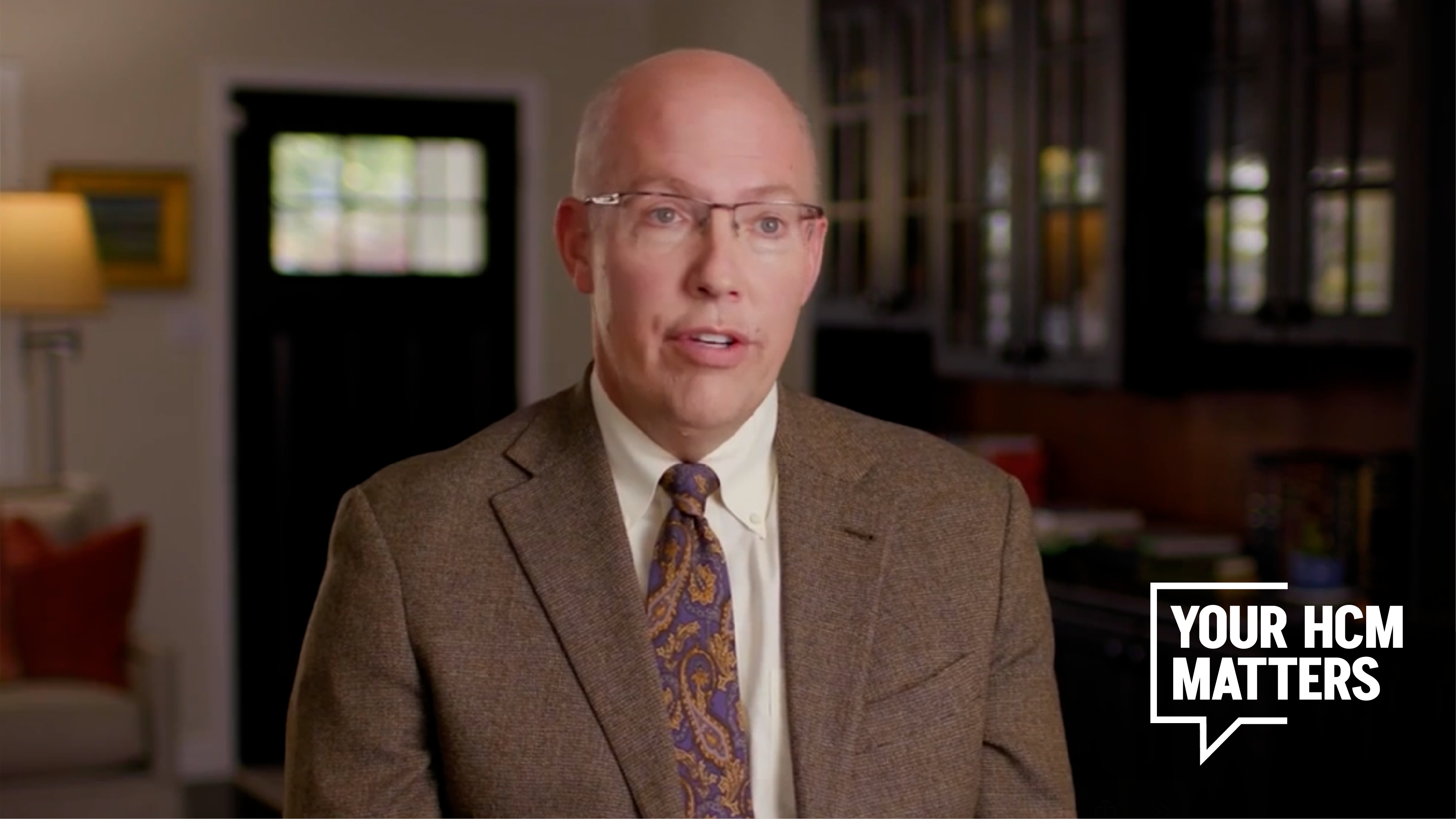
Diagnosis and Management of HCM
When you have unexplained or worsening symptoms, talking to your cardiologist is the most important and, sometimes, the hardest thing to do. If you've been diagnosed with HCM but are struggling to accept your symptoms, know that you're not alone and continued communication with your cardiologist is crucial. Here are tips to help you get the answers you need, plus information about how HCM is diagnosed and what to do if you are diagnosed with HCM.

Seeking help
Talking to your cardiologist about unexplained symptoms is the most important first step in seeking help. During your appointment, clearly describe all of your symptoms and how they affect your daily life. Keeping a symptom diary can help you remember important details. Also, make sure to share any relevant family history, especially if it involves genetic conditions like HCM.

Use 'My HCM Check-in' to maintain a record of which HCM symptoms you are experiencing and how they may be affecting you. You can then bring this along to your next appointment to discuss with your cardiologist.
How is HCM diagnosed?
HCM is usually diagnosed through a combination of your medical history, a physical examination, and specific tests.
Your doctor may ask you to describe the symptoms you are experiencing and ask about your family history. Be sure to mention any family members with heart issues or who have experienced similar symptoms. It is particularly important to tell your doctor about any relatives who died suddenly or unexpectedly, especially if the cause of death was unclear or attributed to heart-related issues.
If your doctor suspects an underlying health condition, they may refer you to a specialist healthcare team. The team might perform these tests:

Electrocardiogram (ECG): This records the electrical activity of your heart, helping doctors see if there are any abnormalities in the heart’s rate or rhythm.

Echocardiogram (echo): This heart ultrasound is the primary test for diagnosing HCM. It uses sound waves to take pictures of your heart, helping doctors to check if it is working properly.

Magnetic resonance imaging (MRI): If an echo doesn’t provide enough information, an MRI can offer a detailed image of the inside of your body. An MRI scan produces a detailed picture of the inside of your body using strong magnets and radio waves, helping doctors see things like muscles and organs.

Exercise test: In this test, the heart activity and symptoms are monitored while undergoing a controlled exercise regimen.

Genetic testing: When imaging tests show less thickening of the heart muscle walls, genetic testing may be done to check if HCM has been passed down to you by a family member.
HCM can be genetic
HCM is often passed on through families, so it’s described as an inherited condition. If one of your parents has HCM, there’s a 50% chance you might have it too.1
Understanding that HCM can be genetic is important because:

Knowing your family history of HCM can assist with the diagnosis process. It’s important to know whether you have any relatives who passed away suddenly or unexpectedly before the age of 50, and if there is a history of HCM in your family. Make sure to share this information with your doctor.

If you are diagnosed with HCM, it’s important to share this information with your family. They might also have the condition and early awareness can be important for their health. Your healthcare team may suggest screening first-degree relatives (parents, siblings, and children). Even if they are not experiencing symptoms, they may be living with the gene that causes HCM unknowingly. If so, further checks and testing would be arranged to help them manage their condition from an early stage.
Dr Michael Ackerman explains the importance of sharing an HCM diagnosis with your family, and why sooner is better.

How is HCM managed?
If you are diagnosed with HCM, discussing treatment options with your doctor is important, as there are ways to help manage the condition, such as:

Taking medications: Your doctor may prescribe medications to control symptoms, improve heart function, or prevent complications associated with HCM.

Undergoing surgery: In some cases, surgical interventions may be recommended to reduce symptoms and improve heart function.

Attending regular check-ups: Regular appointments with your specialist healthcare team, including regular echocardiograms (echos), are crucial for monitoring your symptoms, assessing the progression of HCM, and adjusting your treatment plan as needed.

Managing HCM involves ongoing monitoring of your symptoms. Use the HCM Symptom Check in to keep a record of how your symptoms are affecting you and discuss any changes with your cardiologist at each appointment.
Reference: 1. Ommen SR, et al. Circulation 2020;142:e558–e631.
CV-AU-2500002. April 2025.